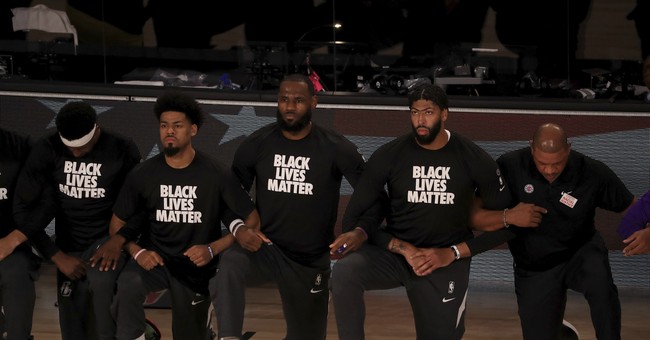
If you’re a Chicago resident hoping to study English at the area’s largest school, your options aren’t exactly open.
In fact, for those of you keen on specializing in the written word, you’re down to just one choice of emphasis.
As relayed by the University of Chicago’s website, for the 2020-21 admissions cycle, the English department will only be accepting students interested in Black Studies.
Normally — as indicated by the page — the department runs the gamut:
Our coverage of chronological fields extends from the medieval era to the twenty-first century, and includes a wide variety of subfields, media, and genres, including graphic narrative, comics, and video games, theatre, cinema, and visual culture, poetry and poetics, fiction and nonfiction, gender and race studies, literary and cultural theory, global Anglophone writing, animal and posthuman studies, psychoanalysis and affect studies, ecocriticism and climate change.
But the world is different these days, and academia’s there to respond.
Per a statement released in July, staff are explicitly pro-BLM:
The English department at the University of Chicago believes that Black Lives Matter.
It’s here where a distinction must be made — are faculty referring to the concept that black human beings have value, or is the school siding with an organization™ in favor — as specified by BlackLivesMatter.com — of the following:
We make space for transgender brothers and sisters to participate and lead.
We are self-reflexive and do the work required to dismantle cisgender privilege and uplift Black trans folk, especially Black trans women who continue to be disproportionately impacted by trans-antagonistic violence.We build a space that affirms Black women and is free from sexism, misogyny, and environments in which men are centered.
…
We disrupt the Western-prescribed nuclear family structure requirement by supporting each other as extended families and “villages” that collectively care for one another, especially our children, to the degree that mothers, parents, and children are comfortable.
We foster a queer‐affirming network. When we gather, we do so with the intention of freeing ourselves from the tight grip of heteronormative thinking, or rather, the belief that all in the world are heterosexual (unless s/he or they disclose otherwise).
Are those the views they’re espousing?
And is the University of Chicago’s Department of English proudly Marxist?
Black Lives Matter movement founder: “We are trained Marxists.”https://t.co/bG7QENIM98
— Liz Wheeler (@Liz_Wheeler) June 22, 2020
Either way, the DoE points out:
[T]he lives of George Floyd, Breonna Taylor, Tony McDade, and Rayshard Brooks matter, as do thousands of others named and unnamed who have been subject to police violence. As literary scholars, we attend to the histories, atmospheres, and scenes of anti-Black racism and racial violence in the United States and across the world. We are committed to the struggle of Black and Indigenous people, and all racialized and dispossessed people, against inequality and brutality.
Therefore, it sounds like those signing up won’t have to worry about whiteness:
For the 2020-2021 graduate admissions cycle, the University of Chicago English Department is accepting only applicants interested in working in and with Black Studies.
The college’s activism is…activated. And as it turns out, literature is full of racism:
Together with students, we attend both to literature’s capacity to normalize violence and derive pleasure from its aesthetic expression… … English as a discipline has a long history of providing aesthetic rationalizations for colonization, exploitation, extraction, and anti-Blackness. Our discipline is responsible for developing hierarchies of cultural production that have contributed directly to social and systemic determinations of whose lives matter and why.
So they’re crusading against “persistent” “anti-Blackness”:
In light of this historical reality, we believe that undoing persistent, recalcitrant anti-Blackness in our discipline and in our institutions must be the collective responsibility of all faculty, here and elsewhere. In support of this aim, we have been expanding our range of research and teaching through recent hiring, mentorship, and admissions initiatives that have enriched our department with a number of Black scholars and scholars of color who are innovating in the study of the global contours of anti-Blackness and in the equally global project of Black freedom.
To be clear, so goes the statement, black studies are part of any good general studies: “[A]ll scholars have a responsibility to know the literatures of African American, African diasporic, and colonized peoples, regardless of area of specialization, as a core competence of the profession.”
But English hasn’t done a good job of that, it seems. According to the department, UC has formerly “been a vehicle of intellectual and economic opportunity for some in the community, and a site of exclusion and violence for others.”
So it’s time for activism:
“Part of our commitment to the struggle for Black lives entails vigorous participation in university-wide conversations and activism about the university’s past and present role in the historically Black neighborhood that houses it.”
In the nation’s public schools, it appears, race is being more actively attended than ever before.
Over the summer, Virginia’s biggest district adopted an “anti-racist” curriculum; as part of her Welcome Back to staff, a Minnesota school superintendent recently asked teachers to “examine their whiteness;” and in July, Washington state’s Office of the Superintendent of Public Instruction announced it would prioritize in-school education for “students of color” among other non-privileged groups.
So goes anti-racism, which deems color blindness as racist.
Back to the University of Chicago, it seems the English department’s doing its part to engineer equity.
And for those interested in English but not wishing to focus on Black Studies, well, you’ll have to learn your lessons elsewhere.
-ALEX
Find all my RedState work here.
And please follow Alex Parker on Twitter and Facebook.
Thank you for reading! Please sound off in the Comments section below.




